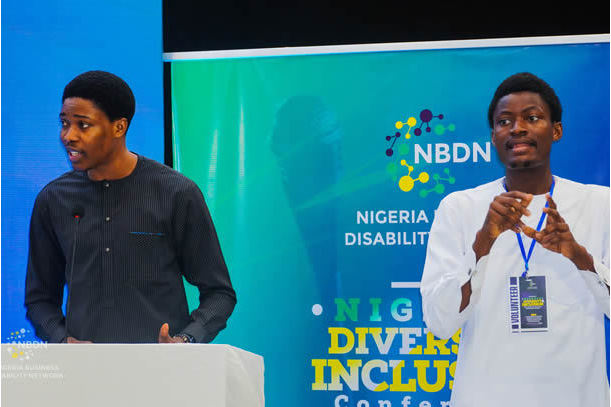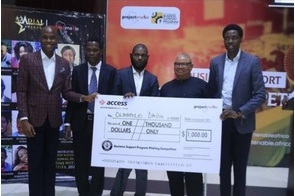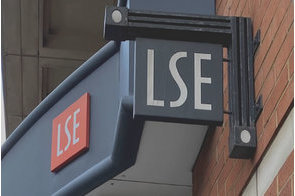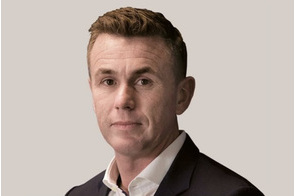Towards economic and social inclusion of persons with disabilities

Summary
In line with its being a socially responsible institution, Access Bank PLC has committed to empowering persons living with disabilities with skills that they can gainfully employ.
Disability is a global challenge. One billion people, or 15 percent of the world's population, have one form of disability or another, according to the World Health Organisation (WHO). Nearly one-fifth of the disabled people suffer from significant disabilities, although there are mild forms of disability.
These statistics compel significant attention, considering that people with disabilities are more likely to experience adverse socio-economic situations, such as less access to formal education, healthcare, and employment. As a result, there tends to be higher poverty rates amongst disabled populations.
The barriers to full social and economic inclusion of persons living with disabilities include lack of access to public amenities and transportation, non-adapted means of communication, unavailability of assistive devices and technologies, service delivery gaps, discrimination, and stigmatization.
In line with its global Sustainable Development Goals (SDGs) towards 2030, the United Nations has emphasised the inclusion of people with disability, especially in relation to education, employment, accessibility, and more. Goal 4 of the 17 SDGs calls for equal access to all levels of education and vocational training for the vulnerable, including persons with disabilities, while Goal 8 advocates full and productive employment and decent work for all. Goals 10, 11, and 17 also have provisions for the inclusion of people within this segment of the human population.
Unfortunately, across several parts of Nigeria, people living with various forms of disability have continued to populate highways, inner roads and are woven into the city’s endless thread of vehicular movement. It is often in these situations that many people remember that disabled and disempowered persons need livelihood support and assistance. Otherwise, people with challenges to their abilities have to cope with whatever support they can get from their family members, many of which are largely untrained to provide some needed assistance.
Although there are no clear data on people living with disabilities in West Africa, a 2018 Nigeria Demographic and Health Survey shows that seven percent of household members above age five in the sub-region experience some level of difficulty in at least one functional domain, e.g., seeing, hearing, walking, cognition, communication, and self-care.
While steps have been taken by local, state, and national governments to address their needs, persons living with disabilities still constitute a large percentage of the poor and forgotten in the society. Sadly, they face discrimination, disempowerment, and stigmatization from their abled counterparts. It is also no longer news that many parts of urban settlements are not planned with persons living with disabilities in consideration. For instance, very few buildings across cities in Nigeria are easily accessible by physically disabled persons. Many open spaces and roads are not designed to allow them easy passage.
Despite consistent calls by bodies that seek inclusion for persons living with disabilities, not much has changed in their plights. One of such calls was made in May 2021 when the General Manager, Lagos State Office for Disability Affairs (LASODA), Ogundairo Oluwadamilare, requested that a ‘disability desk’ be set up to ensure the inclusion of persons living with disability in local government-related activities. Since this call was made, very little progress has been recorded in that direction.
And one would have expected that the existence of the Discrimination Against Persons with Disabilities (Prohibition) Act 2018 would have spurred government, non-governmental agencies and the private sector to collaborate in the implementation of the provisions of the Act. But his has yet to happen at any significant scale. So far, only about 13 states have made a move towards adopting the federal legislation.
However, in line with its being a socially responsible institution, Access Bank PLC has committed to empowering persons living with disabilities with skills that they can gainfully employ. The Bank was appointed Chair of the Nigerian Business Disability Network (NBDN) to champion efforts aimed at raising awareness and fostering collaboration to drive disability inclusion in the Nigerian private sector, in line with the disability Act.
Access Bank, alongside other members of the NBDN, has now inaugurated the Nigeria Diversity and Inclusion Conference. The maiden edition of the conference held on May 19, 2022, in Lagos, Nigeria, in commemoration of the Global Accessibility Awareness Day. The event brought together key stakeholders in the disability support and advocacy space, including James Lalu, the Executive Secretary of the National Commission for Persons with Disability; Adebukola Adebayo, a Disability Consultant with the World Bank Group in Nigeria; and various private sector leaders. The hybrid event, which had approximately 600 participants, presented a platform for businesses to understand the barriers to disability inclusion in Nigeria from the perspective of people with disabilities, as well as learn from organisations who have commenced their supportive transition journey.
Other contributions by Access Bank to ease the challenges faced by disabled persons include a docu-series targeted at monitoring, tracking, reporting, and implementing the Discrimination Against Persons with Disabilities (Prohibition) Act, as well as the launch of a business support programme to showcase and support the business ideas of young, aspiring entrepreneurs living with disabilities. The most innovative entrepreneur under this programme received $1,000 for presenting a viable business pitch.
These are important efforts, and more are needed, if Nigeria, and, indeed, Africa, will achieve the SDGs. The employment, health, financial, educational, and social needs of persons living with disabilities should be brought to the forefront of conversations around sustainability, and more governmental and nongovernmental organisations must continue to champion the efforts.
As Robert Hensel puts it: “There is no greater disability in society than the inability to see a person as more.” – Robert Hensel. This is quite instructive.
Omobolanle Victor-Laniyan is Head of Sustainability at Access Bank.
Related
-
Access Bank demonstrates commitment to support people with disabilities
People with disabilities need to be supported to facilitate their full integration into society.
-
LSE launches £50 million global accelerator for "social unicorns"
100x Impact Accelerator forms a new ecosystem of finance, talent, and access that enables scale-up social enterprises and ...
-
Everyone’s voice is mission-critical for the future of the chemical industry
If you are not intentionally including, then you are unintentionally excluding.









